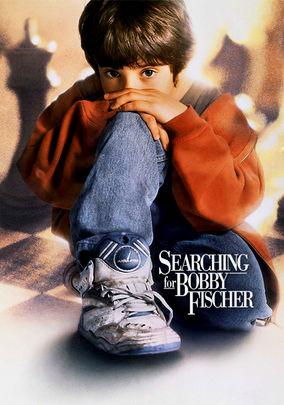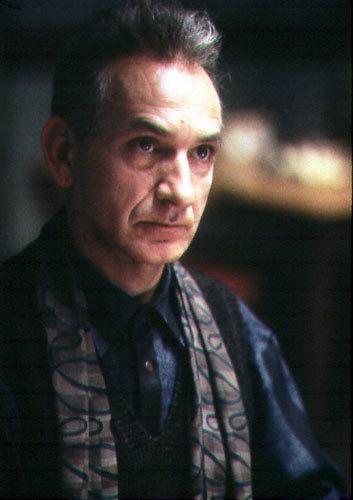 Bobby Fischer was arguably the greatest chess player of all time. As a boy, he faced and defeated the greatest players of his time. In 1972, after a prelude of countless controversies, he won the world chess championship away from the Russians for the first time in years. Then he essentially disappeared into a netherworld of rented rooms, phantom sightings, paranoid outbursts and allegiance to a religious cult. He reappeared not long ago to win a lucrative chess match in Yugoslavia, for which he was willing to lose his citizenship. His games are models of elegance and artistry. His life does not inspire envy.
Bobby Fischer was arguably the greatest chess player of all time. As a boy, he faced and defeated the greatest players of his time. In 1972, after a prelude of countless controversies, he won the world chess championship away from the Russians for the first time in years. Then he essentially disappeared into a netherworld of rented rooms, phantom sightings, paranoid outbursts and allegiance to a religious cult. He reappeared not long ago to win a lucrative chess match in Yugoslavia, for which he was willing to lose his citizenship. His games are models of elegance and artistry. His life does not inspire envy.
“Searching for Bobby Fischer,” is a film of remarkable sensitivity and insight, a delicate and touching drama that takes us deep inside the eccentric competitive mystique of grandmaster chess. It tells a story based on fact, about a “new” Bobby Fischer – is inspired by the life of a chess prodigy Josh Waitzkin (as written by his father Fred Waitzkin) a young boy named Josh Waitzkin (Max Pomeranc) who was born with a gift for chess, which he nurtured in the rough-and-tumble world of of chess hustlers in New York’s Washington Square Park. One of them, a strapping hipster named Vinnie (Laurence Fishburne), keeps up a rapid-fire patter during his game. As he and Josh play, alternating moves every few seconds and capping each move with a triumphant smack of the time clock.
Josh (Max Pomeranc) is a “regular kid” who begins evincing signs of being a genius at 

The two key relationships explored by this film are those of Josh and his father and Josh and his teacher. While Frank never stops loving his son, he becomes obsessed by the need to win. Like Frank, Pandolfini loses sight of his young charge’s innocence and age, and tries to mold him into a chess- playing machine.
Ben Kingsley and Joe Mantegna do excellent jobs bringing their characters to life.
When casting Searching for Bobby Fischer, the production team decided that instead of choosing a young “name” actor who might know little or nothing about chess, they would choose someone who was a chess player first and an actor second. Realism was important to the film makers — they wanted chess-playing viewers to be spared the indignity of watching someone faking playing the game. In Max Pomeranc, an excellent choice was made. Not only is he an experienced chess player, but he acquits himself admirably in the role of Josh. He’s not the best child actor to grace the screen, but he avoids the awkward obviousness of many.
Some famous chess players have brief cameos in the film: Anjelina Belakovskaia, Joel Benjamin, Roman Dzindzichashvili, Kamran Shirazi, along with the real Joshua Waitzkin, Bruce Pandolfini, and Vincent Livermore. Chess master Asa Hoffmann is played by Austin Pendleton; the real Hoffmann did not like the way he was portrayed. Chess expert Poe McClinton, still a park regular, is seen throughout the film. Pal Benko was supposed to be in the film but his part was cut out. Waitzkin’s real mother and sister also have cameos.
The Russian player in the park, played by Vasek Simek, who holds up the sign “For $5 a photo or a game with the man who beat Tal”, was based on the real life of Israel Zilber. Zilber, Latvian chess champion in 1958, defeated the teenage Tal in 1952, and during most of the 1980s was homeless and regarded as one of the top players in Washington Square Park.
“Poe vs. Waitzkin”


8








7








6








5








4








3








2








1










At the end of the film, Josh is seen playing a tough opponent named Jonathan Poe in the final tournament. The character Jonathan Poe was not the actual name of Josh’s opponent; his real name was Jeff Sarwer (a boy younger than Josh). Near the end of the game, where Josh offers Poe a draw, Poe rejects the offer and play continues. Sarwer rejected the draw offer in the real-world game as well. Josh played Sarwer to a draw (the two kings were the only remaining pieces on the board), and they were declared co-champions.
Searching for Bobby Fischer is an intensely fascinating movie capable of involving those who are ignorant about chess as well as those who love it. The focus of the film is less on the actual game than it is on the people, emotions, and pressures surrounding Josh. It is a tale of human trials and triumph, not a sports movie that panders to a certain segment of the population. Chess may not be the most exciting activity to watch, but Searching for Bobby Fischer makes for engaging entertainment.
Cast: Max Pomeranc, Joe Mantegna, Joan Allen, Ben Kingsley, Laurence Fishburne
Director: Steven Zaillian
Producers: Scott Rudin and William Horberg
Screenplay: Steven Zaillian based on the book by Fred Waitzkin
Cinematography: Conrad L. Hall
Music: James Horner
